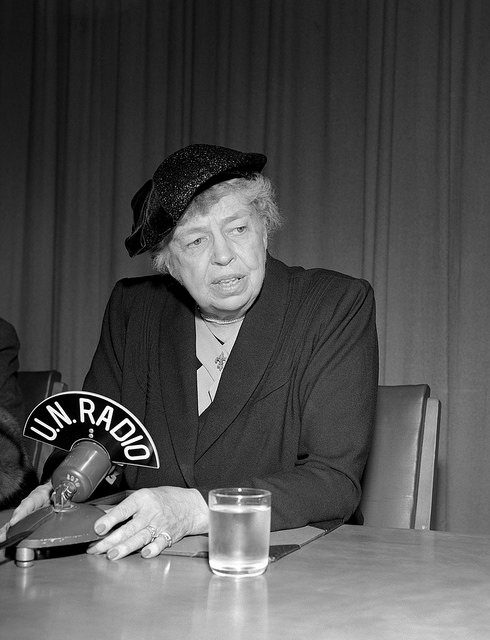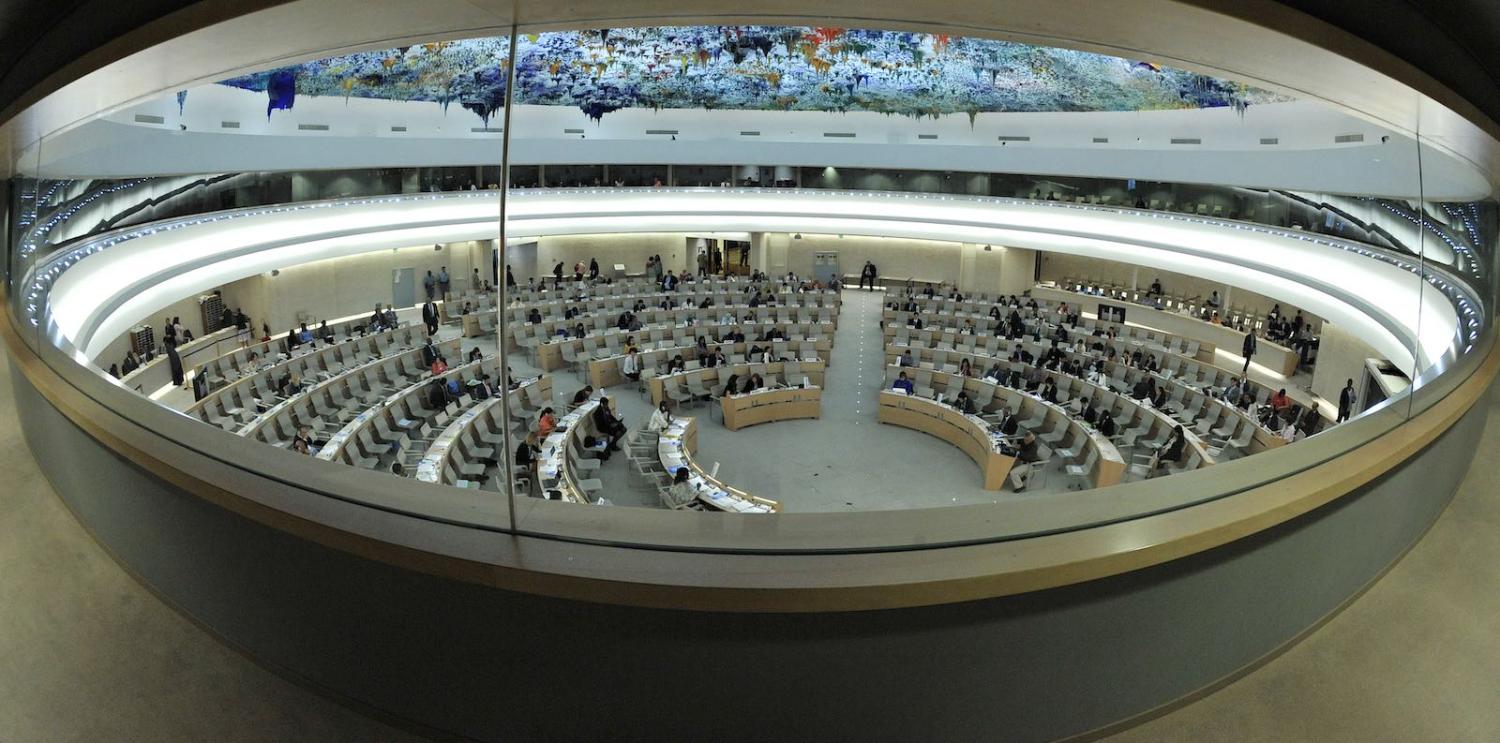The announcement the US was leaving the United Nations Human Rights Council did not come as a shock, especially after calls for an inquiry into clashes over the new US Embassy in Jerusalem.
US ambassador to the UN Nikki Haley described the council as a “hypocritical and self-serving organisation” that displayed “unending hostility towards Israel”. US Secretary of State Mike Pompeo referred to the council as “a protector of human rights abusers”.
The US has expressed similar statements at various times before. Israel pulled out of a peer-review process run by the council in 2013.
But the US decision is still causing sorrow and disappointment in the human rights community. The human rights system has never needed champions more than now, and if superpowers step away, it sets a precedent. There is no clear strategy under which US withdrawal could strengthen and reform the council, or any other part of the UN human rights architecture.
It feels like worlds away from the time Eleanor Roosevelt shepherded the passage of the Universal Declaration of Human Rights in the shadow of the Holocaust. As Roosevelt said in 1948:
We stand today at the threshold of a great event both in the life of the UN, and in the life of mankind.
The human rights landscape now lacks that sense of political idealism and commitment to multilateralism, despite 70 years of hard work building a system of laws and state practice, as well as a large transnational civil society network dedicated to human rights.
It may also be harder to accept the US as a credible global defender of human rights in the future. This was a key point of difference between the US and China.

Why does it matter so much? The Geneva-based HRC is a 47-member intergovernmental body within the UN system, elected for three-year terms by the General Assembly. The council not only seeks to promote and protect human rights, but also addresses alleged rights violations and makes recommendations on them, using “soft law” techniques.
These include special rapporteurs and representatives, independent experts, and working groups that monitor, examine, advise, and publicly report on thematic issues or human rights situations in specific countries (the list includes Australian experts Elizabeth Broderick and Philip Alston).
So the council works on a model of peer pressure and incremental reform. It has done some important work since 2006, such as pressing for justice in Sri Lanka, Syria, North Korea, and Myanmar, and working on the protection of human rights defenders, gender and sexual identity, and disability rights. States seem more persuaded by the the peer-review system than expert reports.
Is it biased? Israel has committed human rights violations in the Occupied Territories. So has the Palestinian National Authority. It is also fair to say that Israel has always received disproportionate attention from the HRC. Some terrible human rights situations have been ignored due to use of bloc voting. The same accusations can be made of the Security Council.
The HRC does require reform, and there is some merit to the US critique. The council needs to be more consistent and more effective. The question is how, given this is a political forum.
A coalition of Geneva-based human rights organisations released a report earlier this year titled Strengthening the UN Human Rights Council from the Ground Up. At its launch, John Fisher, Geneva Director at Human Rights Watch, said that countries need to step up:
Individual countries should strengthen the Council’s ability to promote and protect human rights on the ground, particularly through prevention, implementation and accountability.
Where does this leave the US record on rights? Haley said she wanted “to make it crystal clear that this step is not a retreat from our human rights commitments”. Membership on the council draws attention to a country’s human rights record.
It is clear the US is feeling the heat over treatment of immigrant children, over leaving human rights out of the North Korea talks completely, support for Rodrigo Duterte in the Philippines and Vladimir Putin in Russia, and on many long-term domestic human rights issues, such as the death penalty, incarceration, and torture.
The US has never signed the UN’s core Convention on the Rights of the Child and Convention on the Elimination of Discrimination Against Women treaties.
Countries such as Australia must step into the breach left by the US departure, as will other nations on the council who rely on a functional multilateral system to protect their interests. Australia’s reaction to the US withdrawal was measured and similar to that of other close US allies, including Britain and Canada, and top UN officials:
Australia is disappointed by the US decision to resign from the UN Human Rights Council. We continue to value US leadership in multilateral fora.
Notwithstanding its flaws, we continue to consider the HRC is an important forum for maintaining the international rules-based order.
Australia shares many of the US’s concerns about the HRC. Australia is committed to progress effective and meaningful reform to enable the HRC to carry out its role, and will continue to pursue reform through our HRC term.
We reiterate Australia’s commitment to a strong multilateral human rights system and to advancing human right globally.
Translated: the HRC is what we have, all we have, and we must make it better. The US withdrawal makes this job harder.

